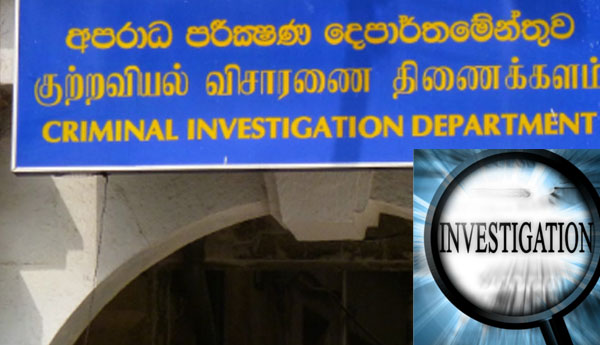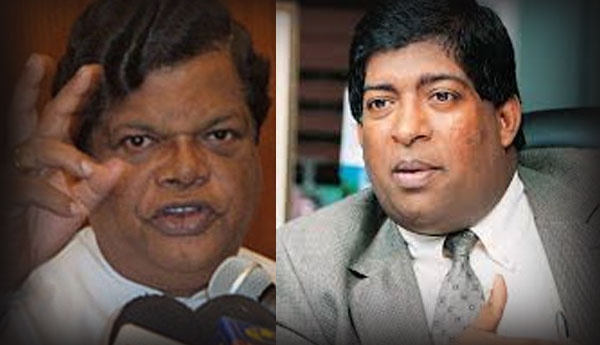The CID’s failure to take a statement from former Army Commander Sarath Fonseka over Wickrematunge’s murder and former IGP N. K. Illangakoon over Wasim Thajudeen’s murder has raised serious questions.
After the fall of the former regime, the stalled investigations into the assassinations of Wickrematunge, Thajudeen, Senior Journalist Prageeth Eknaligoda, and former UNP MP N. Raviraj were reopened, and clear evidence has now emerged that the suspected murderers were linked either with the Sri Lanka Army or with the Police Department. Even though much of the information relating to the murderers has been revealed, the cases are still pending waiting for more vital information for the culprits to be charged. The information that will trigger an arrest or a charge is yet to be made as the higher officials of the Army and the Police are allegedly keeping their lips tight on almost all important cases.
Failure to cooperate
The Army Commander’s failure to cooperate with the investigation teams working on the Wickrematunge murder and Eknaligoda’s disappearance by providing the necessary documents, led the CID to request the Mt. Lavinia Magistrate to deliver an order to the Army Commander to release the information they needed.
“It is alleged that several members of the Kohuwela Army Camp have had an involvement in Wickrematunge’s murder. During the previous regime, the investigators dragged the investigations and were heading in a different direction. However, now it has turned towards the military. The CID is currently investigating into the files of four military intelligence unit members. It has now transpired that an Army Colonel was also involved in Wickrematunge’s assassination,” CID sources said on condition of anonymity.
Phone records
Meanwhile the CID has taken steps to check the phone records of suspected military intelligence officials and is expected to submit the details to courts at the earliest.
“Although the initial investigation teams working on Wickrematunge’s murder said that his death was due to bullets entering his head, not a single bullet was found on his body or at the site where he was murdered. The police teams at that time wanted to show that Wickrematunge was shot at. It was the same with Wasim Thajudeen. The police team led by then DIG Anura Senanayake who is now in remand custody said that Thajudeen’s death was due to a motor accident and closed the investigation. Since it has now been revealed that the Army was behind Wickrematunge’s murder, the then Army Commander, Sarath Fonseka, has to take the responsibility.
This murder took place at the height of the war and as the Army Commnader, Sarath Fonseka has to say who allowed these army personnel to carry out a private job instead of their assigned duties. It is the same with the former IGP, N. K. Illangakoon. When the media levelled allegations against the Police for concealing evidence of Thjudeen’s murder, the IGP should have looked into and held an independent inquiry. The CID is planning to present this information to the court as well. Accordingly, further investigations will be carried out,” the sources added. According to the sources, in regard to Raviraj’s assassination, the CID has already reported the facts to the court and the submissions have been made by both parties. Once the non- summary inquiry is completed by the Magistrate’s Court, the case will be referred to the High Court for further steps.
State witness
“Raviraj’s murder investigation took a slight turn when the State witness admitted that he witnessed how the murder took place. He admitted in courts before the magistrate that he saw the former MP being shot by the remanded suspect Gamini Seneviratne at Manning Town in Narahenpita.
He also stated that he had previously given statements to the CID on May 21 and 22, 2008 but didn’t reveal the truth behind the killing as his life was under threat. Since the new government was elected to power, he was compelled to reveal the vital truth about the murder. At a previous magisterial inquiry, he had affirmed in court that the officers attached to the naval intelligence camp in Laundry Watta in Gangaramaya conspired to commit the murder,” the sources said.
Meanwhile, when asked why the commanding officers were not helping out with the investigations when military intelligence officers were accused of the murders and abductions of many including Eknaligoda and Wickrematunge, Military Spokesman Brigadier Jayanath Jayaweera said that no one can accuse the Army of not taking any action since the Army has always been helping out investigators to nab the culprits.
“No one can say we are not taking any action; but when an investigation is underway, we will help them out in the process,” the spokesman said. The Army Spokesman said that in the case of Lasantha Wickrematunge’s killing, an internal investigation was carried out and based on its findings, measures were taken immediately to hand over all the relevant documents to courts. When asked why the Army failed to release the movement records of the army personnel which the CID wanted for the Wickrematunge murder investigation, Brigadier Jayaweera said that the Army does not always have control of their movements.
“There are two groups of soldiers, those who are living inside the camps, and those who live outside the camp. Personnel engage in outside duties don’t need to obtain permission to leave the camps. They can leave after carrying out their duties for the day,” the spokesman said.
Courtesy- The Sunday Leader



